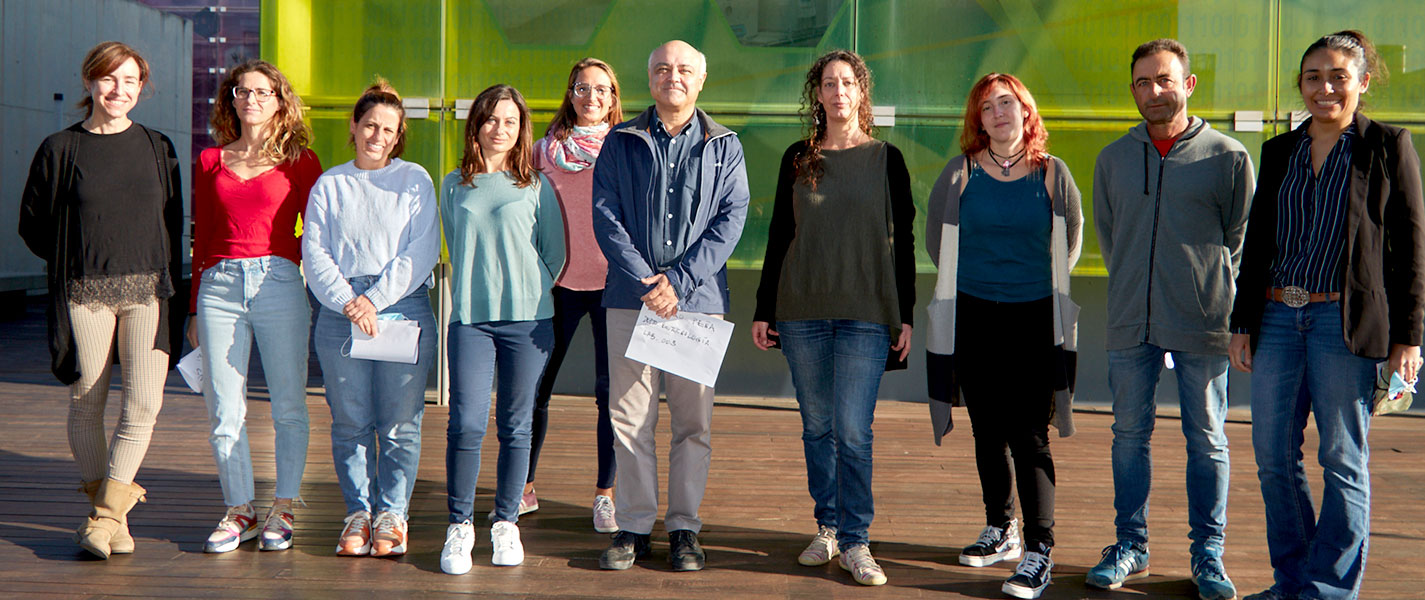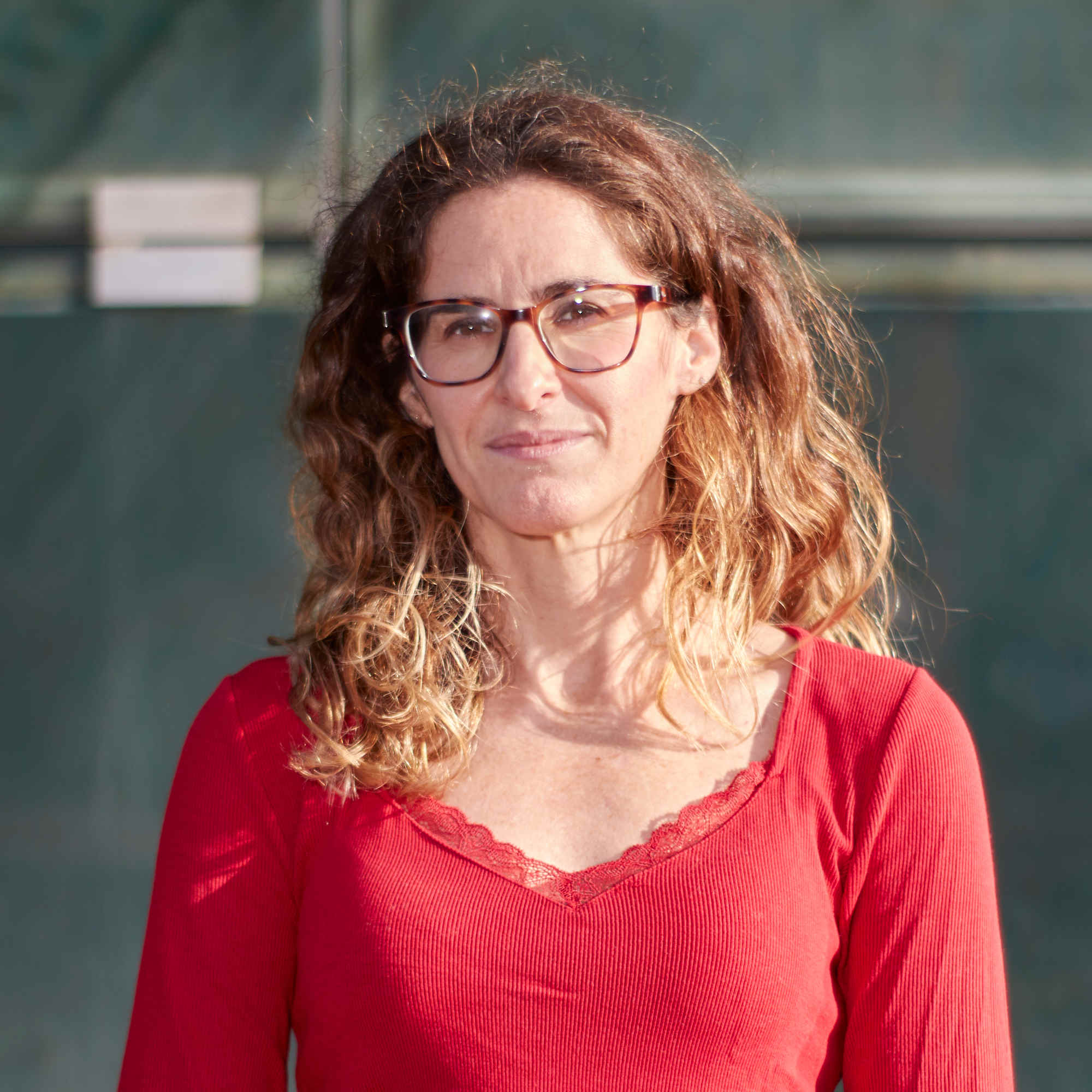
Biotecnología de Cítricos
Línea de Investigación: Biotecnología y Mejora Vegetal de Especies Cultivadas

- Investigación
- Personal
- Publicaciones
- Proyectos
- Otras Publicaciones
- Patentes
Investigación
Personal
Investigadores en Plantilla
Personal Contratado y Becarios
Publicaciones
-
Rodrigo, MJ; Lado, J., Alós, E., Alquézar, B., Dery, O., Hirschberg, J., Zacarías, L (2019)A mutant allele of ζ-carotene isomerase (ZISO) is associated with the yellow pigmentation of the “Pinalate” sweet orange mutant and reveals new insights into its role in fruit carotenogenesis
BMC Plant Biology 19:465
-
Ruiz-Ruiz, S., Navarro, B., PEÑA, L., Navarro, L., Moreno, P., Di Serio, F., Flores, R (2019)Citrus Tristeza Virus: Host RNA Silencing and Virus Counteraction. Citrus Tristeza Virus: Methods and Protocols
Methods in Molecular Biology 2015: 195-207
-
Soler, N., Plomer, M., Fagoaga, C., Moreno, P., Navarro, L., Flores, R. and PEÑA, L (2019)Methods for producing transgenic plants resistant to CTV. Citrus Tristeza Virus: Methods and Protocols
Methods in Molecular Biology 2015: 229-243
-
Cifuentes-Arenas, J.C., Beattie, G.A.C., Peña, L., Lopes, S.A (2019)Murraya paniculata and Swinglea glutinosa as short-term transient hosts of ‘Candidatus Liberibacter asiaticus’ and implications for spread of Huanglongbing.
Phytopathology
-
Caland, R.B.O., Cadavid, C.O.M., Carmona, L., PEÑA, L., Oliveira, R.P (2019)Pasteurized orange juice rich in carotenoids protects Caenorhabditis elegans against oxidative stress and β-amyloid toxicity through direct and indirect mechanisms
Oxidative Medicine and Cellular Longevity. Article ID 5046280,
-
Carmona, L., Alquézar, B., Tárraga, S., PEÑA, L (2019)Protein analysis of Moro blood orange pulp during storage at low temperatures
Food Chemistry 277: 75-83
-
Peris J.E., Malara T., Borges R., Falconi J.R., Peña, L., Fedriani, J.M. (2019)Reunion in the overseas: introduced wild boars and cultivated orange trees interact in the Mata Atlântica (Brazil).
International Journal of Tropical Biology 67 (4): 901-912
-
Felisberto, P.A.C, Girardi, E.A., PEÑA, L. Felisberto, G., Beattie, G.A.C., Lopes (2019)Unsuitability of indigenous South American Rutaceae as potential hosts of Diaphorina citri
Pest Management Science, DOI 10.1002/ps.5304
-
Wulff, Nelson A., Marques, Viviani V., Peris, Josep Enric., Pons, Elsa, Sanches, Andre L., Peña, Leandro (2018)Biossegurança de árvores frutíferas geneticamente modificadas no campo: o caso dos cítricos
Biossegurança de árvores. Capítulo 12
- Ruiz-Ruiz, S., Spàno, R., Navarro, L., Moreno, P., PEÑA, L. and Flores, R (2018)
Plant Molecular Biology
-
Ruiz-Ruiz, S., Navarro, B., PEÑA, L., Navarro, L., Moreno, P., Di Serio, F. and Flores, R (2018)Citrus Tristeza Virus: Host RNA Silencing and Virus Counteraction.
Methods in Molecular Biology.
-
Febres, Vicente J., Peña, Leandro, Folimonova, Svetlana, and Moore, Gloria A. (2018)Citrus. Biotechnology of Fruit and Nut Crops
CABI Publishing, chapter 20.1, CAB International
-
Rodríguez, Ana; Kava, Vanessa; Latorre-García, Lorena; da Silva jr., Geraldo J.; Pereira, Rosana G.; Glienke, Chirlei; Ferreira-Maba, Lisandra S.; Vicent, Antonio; Shimada, Takehiko; Peña, Leandro. (2018)Engineering D-limonene synthase down-regulation in orange fruit induces resistance against the fungus Phyllosticta citricarpa through enhanced accumulation of monoterpene alcohols and activation of defence. Molecular
Molecular Plant Pathology. 19 – 9, pp. 2077 – 2093
-
Soler, N., Plomer, M., Fagoaga, C., Moreno, P., Navarro, L., Flores, R. and PEÑA, L. (2018)Methods for producing transgenic plants resistant to CTV.
Methods in Molecular Biology
-
Tomaseto, A.F., Marques, R.N., Fereres, A., Zanardi, O.Z., Volpe, H.X.L., Alquézar, B., PEÑA, L. and Miranda, M.P. (2018)Orange jasmine as a trap crop to control Diaphorina citri
Scientific Reports 9: 2070
-
Carmona, Lourdes; Alquézar, Berta; Tárraga, Susana and Peña, Leandro. (2018)Protein analysis of Moro blood orange pulp during storage at low temperatures.
Food Chemistry 277: 75-83
-
Carmona, Lourdes, Alquézar, Berta, Marques, Viviani V. and Peña, Leandro. (2017)Anthocyanin biosynthesis and accumulation in blood oranges during postharvest storage at different low temperatures
Food Chemistry 237: 7-14
-
Shimada, Takehiko; Endo, Tomoko; Rodríguez, Ana; Fujii, Hiroshi; Goto, Shingo; Matsuura, Takakazu; Hojo, Yuko; Ikeda, Yoko; Mori, Izumi; Fujikawa, Takashi; Peña, Leandro; Omura, Mitsuo. (2017)Ectopic accumulation of linalool confers resistance to Xanthomonas citri subsp. citri in transgenic sweet orange plants.
Tree Physiology. 37, pp. 654 – 664
-
Peris, Josep Enric; Rodríguez, Ana; Peña, Leandro; Fedriani, José María (2017)Fungal infestation boosts fruit aroma and fruit removal by mammals and birds
Scientific Reports 7 – Article 5646, 2017
- Alquézar, Berta; Rodríguez, Ana; de la Peña, Marcos; Peña, Leandro. (2017)
Frontiers in Plant Science 8 – Article 1481
-
Alquézar, Berta; Rodríguez, Ana; de la Peña, Marcos; Peña, Leandro. (2017)Genomic analysis of terpene synthase Family and functional characterization of seven sesquiterpene synthases from Citrus sinensis.
Frontiers in Plant Science 8 – Article 1481
-
Rodríguez, Ana; Peris, Josep; Redondo, Ana; Shimada, Takehiko; Costell, Elvira; Carbonell, Inmaculada; Rojas, Cristina; Peña, Leandro (2017)Impact of d-limonene synthase up- or down-regulation on sweet orange fruit and juice odor perception.
Food Chemistry. 217, pp. 139 – 150.
-
Pons, Elsa and Peña, Leandro (2017)Plant gene silencing: Mechanisms and applications. Chapter 8. CABI Biotechnology Series
CABI Biotechnology Series, vol 5, pp. 147-165
-
Alquézar, Berta, Linhares Volpe, Haroldo X., Facchini Magnani, Rodrigo, Pedreira de Miranda, Marcelo, Almeida Santos, Mateus, Wulff, Nelson A., Bento, J. Mauricio S., Parra, Jose Roberto P., Bouwmeester, Harro and Peña, Leandro. (2017)β-caryophyllene emitted from a transgenic Arabidopsis or chemical dispenser repels Diaphorina citri, vector of Candidatus Liberibacters.
Scientific Reports 7- Article 5639
-
Rodríguez, Ana; Peris, Josep; Redondo, Ana; Shimada, Takehiko; Peña, Leandro. (2016)Principal component analysis (PCA) of volatile terpene compounds dataset emitted by genetically modified sweet orange fruits and juices in which a D-limonene synthase was either up- or down-regulated vs. empty vector controls
Data in Brief. 9, pp. 355 – 361. 2016.












